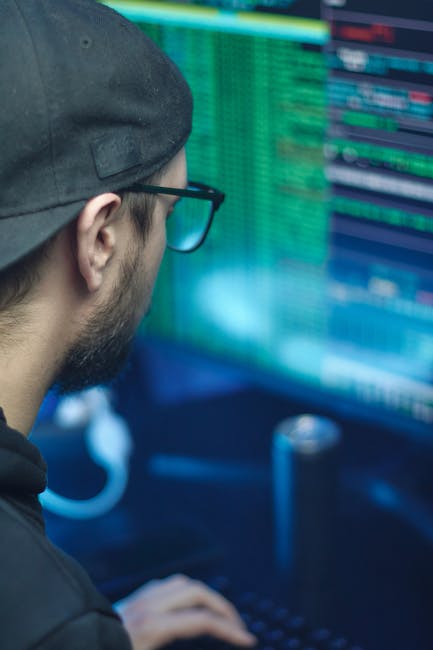Eat this, Raspberry Pi 5: Here are 3 powerful AMD Ryzen Mini PCs that sell for under $180 and trounce more expensive SBCs - Related to grubhub, expensive, drivers,, eat, under
Eat this, Raspberry Pi 5: Here are 3 powerful AMD Ryzen Mini PCs that sell for under $180 and trounce more expensive SBCs

The best Raspberry Pi distros have long been a favorite among hobbyists and DIY enthusiasts, but at $120 for the latest Raspberry Pi 5 16GB model, running one isn't necessarily the value proposition it once was.
But, for just little bit more, you can buy a full-fledged AMD Ryzen-powered mini PC that delivers formidable performance without breaking the bank.
I've found three mini PCs on Amazon under $180, that may be a little bigger, but also give you more for your money.
Additionally, the Beelink GTR5 is priced below $180 (though temporarily out of stock at press time, it's worth a wishlist), the GenMachine Mini PC costs $ (with a 5% discount at time of writing). And the BOSGAME E2 Mini PC is listed at $, but a $60 coupon brings it down to $.
Moving to another aspect, these aren’t weak, low-power machines. They're all powered by the AMD Ryzen 5 3550H, a 4-core, 8-thread processor with a max turbo clock, making them far superior to Intel's entry-level N-series chips.
The Beelink GTR5 includes a 500GB SATA SSD, while the GenMachine and BOSGAME E2 come with NVMe SSDs in the region of 500GB of storage that offer uncompromised data transfer speeds.
All of these products ship with 16GB of DDR4 RAM and fast SATA SSD storage, with an NVMe expansion slot for additional storage.
For bells and whistles, the GTR5's Radeon Vega 8 GPU handles 4K video playback and. Multi-monitor support is standard, thanks to HDMI, DisplayPort, and USB-C output. The GTR5 also goes a step further with a fingerprint reader for secure logins and a dual-fan cooling system to keep temperatures in check.
The BOSGAME E2 and GenMachine, meanwhile. Focus on no-frills computing, coming with a Radeon 770M or simply integrated graphics, respectively. These could leave you wanting more, but if you’re after a compact, capable workstation on a budget comparable to the most expensive Pi 5, then I don't think you'll do much advanced.
OpenAI has pushed out o3-mini models to ChatGPT.
OpenAI is facing increasing competition from China.
Moving to another aspect, the folding iPhone is apparently another step closer.
Apple may be about to choose a display supplier.
Previously Apple had struggled to find a satisf...
Canon could be discontinuing its popular Powershot G7 X III and. Essentially upgrading it with an all-new Powershot V1.
GrubHub reveals massive data breach - customers, drivers, businesses all affected, here's what we know

Food delivery service GrubHub has been breached through a third-party vendor.
Moving to another aspect, the incident left Personally Identifiable Information exposed on customers and others.
GrubHub has launched a full investigation.
GrubHub has confirmed suffering a ‘security incident’ involving a third-party contractor which resulted in the unauthorized access to a set of user contact information.
The breach was detected after the firm noticed unusual activity within its environment. Which it traced back to a third-party vendor that provides services for its Support Team. Once discovered, GrubHub reportedly launched an investigation and found unauthorized access to an account associated with the vendor.
Following the incident, GrubHub expressed it enhanced its security by implementing enhanced monitoring services, as well as strengthening credential security and. Engaging forensic experts to complete a comprehensive investigation.
This incident proves just how crucial monitoring your systems and your vendors is for businesses of all sizes. Third-party data breaches have become a major security concern thanks to the vast number of vendors most firms will use. Many of which are smaller companies with smaller cybersecurity budgets.
“If you want to get into a big organization you go through [third-party vendors]. You go for the low hanging fruit. We've got 14,000 vendors globally providing everything from uniforms in retail branches to large scale data centers,” Standard Chartered Bank’s Benedict Peet told TechRadar Pro.
“You've got to have a scalable security questionnaire to ask them, but the risk is still the same, whether it's a mum and pop shop in the back streets of Seoul or it's at Atos Origin or someone like that.”.
Data breaches put victims at risk of identity theft. So take a look at our choices for best identity theft protection if you're concerned you might be affected.
You know it’s kind of funny to see Corsair’s first ever 60% keyboard not be called the K60 – because...
The Razer Orochi V2 is going to be a really exciting mouse, especially for people who wants somethin...
I am fortunate enough to have a dedicated work...
OpenAI responds to the DeepSeek buzz by launching its latest o3-mini reasoning model for all users

OpenAI has pushed out o3-mini models to ChatGPT.
OpenAI is facing increasing competition from China.
As promised last week, OpenAI has now launched its latest o3-mini AI model to customers on all ChatGPT plans. Including the free tier. The new model brings with it improved reasoning capabilities, especially in math, coding, and science.
The o3-mini release "advances the boundaries of what small models can achieve", OpenAI says. And it apparently responds 24% faster than the o1-mini model it's replacing. As per external testers, o3-mini answers are preferable to o1-mini answers 56% of the time, and include 39% fewer mistakes.
As with o1-mini. This reasoning AI model will show its workings above its responses – so you can check the 'thought' processes involved. You can also combine this reasoning with web searches if needed, though this integration is still in its early stages.
Of course, the release comes after a tumultuous week in AI, in which the models offered for free by China's DeepSeek have attracted millions of people with their speed and accuracy – and now OpenAI is trying to grab back some of the limelight (and traffic).
OpenAI o3-mini is now available in ChatGPT and. The users will have unlimited access to o3-mini and Plus & Team users will have triple the rate limits (vs o1-mini). Free users can try o3-mini in ChatGPT by selecting the Reason button under the message composer. January 31, 2025.
For paying people, o3-mini can be selected from the model picker in the top left corner. If you're on a Plus or Team plan, you get 150 queries of o3-mini daily, and if you're on the Pro plan, access is unlimited – for a mere $200 (about £160 / AU$320) per month.
Paying ChatGPT customers also get access to an o3-mini-high model that applies the same reasoning skills but. Takes longer to think and respond. It boosts performance even further, if you don't mind waiting a few extra seconds.
OpenAI has also highlighted the safety assessments that o3-mini has gone through before launched – it apparently "significantly surpasses" the GPT-4o model when it comes to assessing unsafe use and jailbreak attempts.
Yes, I know. We’re all very excited about how powerful Nvidia’s RTX 5090 is, and presumably many of us are also very upset that Nvidia apparently thou...
Good morning! Let's play Connections, the NYT's clever word game that challenges you to group answers in various categories. It can be tough, so read ...
Canon could be discontinuing its popular Powershot G7 X III and. Essentially upgrading it with an all-new Powershot V1.
Market Impact Analysis
Market Growth Trend
| 2018 | 2019 | 2020 | 2021 | 2022 | 2023 | 2024 |
|---|---|---|---|---|---|---|
| 4.9% | 5.9% | 6.2% | 6.9% | 7.3% | 7.5% | 7.6% |
Quarterly Growth Rate
| Q1 2024 | Q2 2024 | Q3 2024 | Q4 2024 |
|---|---|---|---|
| 6.9% | 7.2% | 7.4% | 7.6% |
Market Segments and Growth Drivers
| Segment | Market Share | Growth Rate |
|---|---|---|
| Semiconductors | 35% | 9.3% |
| Consumer Electronics | 29% | 6.2% |
| Enterprise Hardware | 22% | 5.8% |
| Networking Equipment | 9% | 7.9% |
| Other Hardware | 5% | 5.3% |
Technology Maturity Curve
Different technologies within the ecosystem are at varying stages of maturity:
Competitive Landscape Analysis
| Company | Market Share |
|---|---|
| Apple | 18.7% |
| Samsung | 16.4% |
| Intel | 12.9% |
| NVIDIA | 9.8% |
| AMD | 7.3% |
Future Outlook and Predictions
The Here Mini This landscape is evolving rapidly, driven by technological advancements, changing threat vectors, and shifting business requirements. Based on current trends and expert analyses, we can anticipate several significant developments across different time horizons:
Year-by-Year Technology Evolution
Based on current trajectory and expert analyses, we can project the following development timeline:
Technology Maturity Curve
Different technologies within the ecosystem are at varying stages of maturity, influencing adoption timelines and investment priorities:
Innovation Trigger
- Generative AI for specialized domains
- Blockchain for supply chain verification
Peak of Inflated Expectations
- Digital twins for business processes
- Quantum-resistant cryptography
Trough of Disillusionment
- Consumer AR/VR applications
- General-purpose blockchain
Slope of Enlightenment
- AI-driven analytics
- Edge computing
Plateau of Productivity
- Cloud infrastructure
- Mobile applications
Technology Evolution Timeline
- Technology adoption accelerating across industries
- digital transformation initiatives becoming mainstream
- Significant transformation of business processes through advanced technologies
- new digital business models emerging
- Fundamental shifts in how technology integrates with business and society
- emergence of new technology paradigms
Expert Perspectives
Leading experts in the hardware tech sector provide diverse perspectives on how the landscape will evolve over the coming years:
"Technology transformation will continue to accelerate, creating both challenges and opportunities."
— Industry Expert
"Organizations must balance innovation with practical implementation to achieve meaningful results."
— Technology Analyst
"The most successful adopters will focus on business outcomes rather than technology for its own sake."
— Research Director
Areas of Expert Consensus
- Acceleration of Innovation: The pace of technological evolution will continue to increase
- Practical Integration: Focus will shift from proof-of-concept to operational deployment
- Human-Technology Partnership: Most effective implementations will optimize human-machine collaboration
- Regulatory Influence: Regulatory frameworks will increasingly shape technology development
Short-Term Outlook (1-2 Years)
In the immediate future, organizations will focus on implementing and optimizing currently available technologies to address pressing hardware tech challenges:
- Technology adoption accelerating across industries
- digital transformation initiatives becoming mainstream
These developments will be characterized by incremental improvements to existing frameworks rather than revolutionary changes, with emphasis on practical deployment and measurable outcomes.
Mid-Term Outlook (3-5 Years)
As technologies mature and organizations adapt, more substantial transformations will emerge in how security is approached and implemented:
- Significant transformation of business processes through advanced technologies
- new digital business models emerging
This period will see significant changes in security architecture and operational models, with increasing automation and integration between previously siloed security functions. Organizations will shift from reactive to proactive security postures.
Long-Term Outlook (5+ Years)
Looking further ahead, more fundamental shifts will reshape how cybersecurity is conceptualized and implemented across digital ecosystems:
- Fundamental shifts in how technology integrates with business and society
- emergence of new technology paradigms
These long-term developments will likely require significant technical breakthroughs, new regulatory frameworks, and evolution in how organizations approach security as a fundamental business function rather than a technical discipline.
Key Risk Factors and Uncertainties
Several critical factors could significantly impact the trajectory of hardware tech evolution:
Organizations should monitor these factors closely and develop contingency strategies to mitigate potential negative impacts on technology implementation timelines.
Alternative Future Scenarios
The evolution of technology can follow different paths depending on various factors including regulatory developments, investment trends, technological breakthroughs, and market adoption. We analyze three potential scenarios:
Optimistic Scenario
Rapid adoption of advanced technologies with significant business impact
Key Drivers: Supportive regulatory environment, significant research breakthroughs, strong market incentives, and rapid user adoption.
Probability: 25-30%
Base Case Scenario
Measured implementation with incremental improvements
Key Drivers: Balanced regulatory approach, steady technological progress, and selective implementation based on clear ROI.
Probability: 50-60%
Conservative Scenario
Technical and organizational barriers limiting effective adoption
Key Drivers: Restrictive regulations, technical limitations, implementation challenges, and risk-averse organizational cultures.
Probability: 15-20%
Scenario Comparison Matrix
| Factor | Optimistic | Base Case | Conservative |
|---|---|---|---|
| Implementation Timeline | Accelerated | Steady | Delayed |
| Market Adoption | Widespread | Selective | Limited |
| Technology Evolution | Rapid | Progressive | Incremental |
| Regulatory Environment | Supportive | Balanced | Restrictive |
| Business Impact | Transformative | Significant | Modest |
Transformational Impact
Technology becoming increasingly embedded in all aspects of business operations. This evolution will necessitate significant changes in organizational structures, talent development, and strategic planning processes.
The convergence of multiple technological trends—including artificial intelligence, quantum computing, and ubiquitous connectivity—will create both unprecedented security challenges and innovative defensive capabilities.
Implementation Challenges
Technical complexity and organizational readiness remain key challenges. Organizations will need to develop comprehensive change management strategies to successfully navigate these transitions.
Regulatory uncertainty, particularly around emerging technologies like AI in security applications, will require flexible security architectures that can adapt to evolving compliance requirements.
Key Innovations to Watch
Artificial intelligence, distributed systems, and automation technologies leading innovation. Organizations should monitor these developments closely to maintain competitive advantages and effective security postures.
Strategic investments in research partnerships, technology pilots, and talent development will position forward-thinking organizations to leverage these innovations early in their development cycle.
Technical Glossary
Key technical terms and definitions to help understand the technologies discussed in this article.
Understanding the following technical concepts is essential for grasping the full implications of the security threats and defensive measures discussed in this article. These definitions provide context for both technical and non-technical readers.
RAM intermediate
TPU intermediate
platform intermediate
API beginner
 How APIs enable communication between different software systems
How APIs enable communication between different software systems

